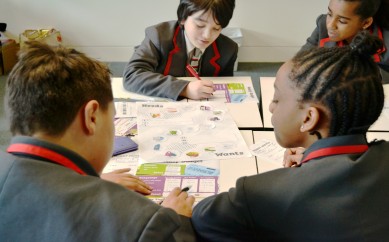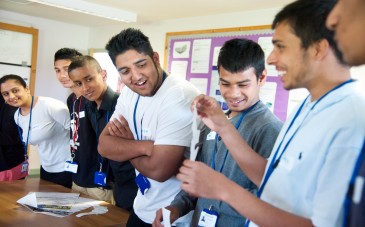 It is in, and it is brilliant. For the first time ever, from September 2014, 11-16 year olds will learn how to budget, discover what pensions are and solve money related mathematical problems.
It is in, and it is brilliant. For the first time ever, from September 2014, 11-16 year olds will learn how to budget, discover what pensions are and solve money related mathematical problems.
It is a huge achievement and rightly puts financial literacy on the map and in the minds of young people at England’s maintained secondary schools.
However, the job is not done and we can not just tick a box and leave it at that.
MyBnk believes even with these changes, ad-hoc and pot luck provision will remain.
Sex, drugs and APR
Citizenship along with PSHE are very broad subjects covering sex, politics, the justice system and civil society – usually in just one hour lesson a week. Our touch points for financial education are quite limited.
MyBnk strongly feels teachers need outside expertise to maximise the impact of these precious few hours, now more than ever.
Citizenship is compulsory, though 3.9%% of those taking their GCSEs this year decided to study it for a qualification, currently half a GCSE. This is up 68% on last year. However, there was a 51% decrease in those opting for a short course in citizenship, which is not assessed by the Department for Education as a GCSE. In good news, Citizenship Studies has been named by the Department for Education as one that will count towards the new ‘Best 8’ school performance tables measure.
Missing out
 For those over the age of 16, there will be no statutory money lessons at a crucial transitional stage, whether it is their first job, living independently or starting university or further education.
For those over the age of 16, there will be no statutory money lessons at a crucial transitional stage, whether it is their first job, living independently or starting university or further education.
There is a danger of setting young people up for a fall. Combined with poor career advice and a tough job market, young people who have benefited from earlier financial literacy programmes could still be susceptible to debt and make poor financial decisions.
Academies and Free Schools can opt out of teaching the National Curriculum all altogether, bypassing any financial education. They currently make up half of all England’s secondary schools.
What next?
MyBnk is thrilled financial education is on the books and we are working with teachers and young people to build better and invigorating programmes that can meet all of these concerns.
We are already busy in the lab creating new and exciting ways of bringing money to life for young people and helping teachers maximise the impact of lessons with award winning programmes.
Demand for MyBnk sessions, developed with young people, teachers, financial experts and youth workers, has doubled year-on-year and we will continue to deliver direct, engaging and expert led financial and enterprise education.
Case Studies – Impact – Teachers Testimonial – Vulnerable Young People – Independent Assessment


